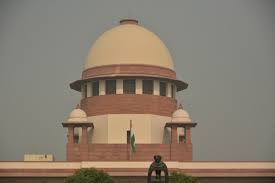The case of Godrej & Boyce vs. CIT (Supreme Court)

Section 115-O of the Act
In the judgment given by the Bombay High Court for Godrej & Boyce vs. CIT 328 ITR 81 (Bom), The Supreme Court of India needed to review two fundamental questions:
- In the appellant’s case, if there was any question at all of the Section 14A provisions, taking into consideration the common findings made in a stipulated time frame by the lower authorities?
- If the phrase “income which does not form part of total income under this Act” that comes in Section 14A encompasses dividend income in its scope considering which tax is payable under Section 115-O of the Act as well as the revenue on the mutual fund units on the tax that us payable under Section 115-R?

The detail of Bombay High Court for Godrej & Boyce vs. CIT 328 ITR 81 (Bom)
Supreme Court
ReQ1
- The need to evoke the provisions of Section 14A(1) of the Act proves that the outlay of money that has to be deducted had been incurred to earn the income of dividend.
- As far as the assessee is concerned, the issues are concluded in favour of it for the years 1998-1999, 1999-2000 and 2001-2002 as the Assessment Years. There have been recorded findings that the expenditure has no link with the earning of dividend income and therefore, the assessee could entail the whole benefit of the full exemption.
- In this case, also, there has not been any mention of reasons that the Assessing Officer had during dealing with Assessment Year 2002-2003 to hold that no expenditure was incurred to earn the dividend income.
- In these circumstances, our view is that the second question should be for the assessee and the Assessment year held be 2002-2003, and the full benefit of the claim is entitled to the assessee with no deductions whatsoever.
ReQ2:
- The motive behind introducing Section 14A of the Act by the Finance Act 2001 has no ambiguity and is evident. There was an intention to match the claim of allowance of expenditure that was incurred to earning the exempted income in a condition where the assessee has both includible and non-includible as well as exempted and non-exempted income. The section does not include such a condition wherein even if the income is taxable by the dividend paying company, then it should not be includible in the total income. The expenditure that is made to earn that part of the income should be allowed considering that on this income, no tax is paid by the assessee.
- The Assessee cannot be helped with the principle of law in K.P. Varghese (1981) 131 ITR 597 (SC). The actual meaning of Section 14A seems to be in sync with the purpose of the tax levy on the income. Therefore, the principle of interpretation can be applied since the words have no ambiguity and are bright and principles different from accurate view will be in the application.
- The Section 115-O of the Act has sub-sections (4) and (5) that clear the fact that benefit of the dividend payment cannot be claimed by the recipient assessee or the company paying a dividend.
- For the above-mentioned reasons, the first question of the appeal gets its answer against the appellant-assessee by holding Section 14A of the Act. This will apply to the income on which tax becomes payable under Section 115-O of the Act.


 ITAT Amritsar: No Section 269SS Violation for One-Time Cash Payment Before Sub-Registrar
ITAT Amritsar: No Section 269SS Violation for One-Time Cash Payment Before Sub-Registrar  Tax Officials Unleash Digital Dragnet: How New Raid Powers Redefine Privacy, Property Rights in India and likely to Fuel Corruption
Tax Officials Unleash Digital Dragnet: How New Raid Powers Redefine Privacy, Property Rights in India and likely to Fuel Corruption  Income Tax Department Rewards for Reporting Tax Evasion: A Comprehensive Guide
Income Tax Department Rewards for Reporting Tax Evasion: A Comprehensive Guide  Forfeiture of Gratuity by Employer- What are the Remedies for an employee- Can employer be challenged?
Forfeiture of Gratuity by Employer- What are the Remedies for an employee- Can employer be challenged?  Employer can forfeit gratuity of an employee in case of moral turpitude
Employer can forfeit gratuity of an employee in case of moral turpitude  Diving Deeper: The Impact of the New Tax Bill on Dairy and Farming Income
Diving Deeper: The Impact of the New Tax Bill on Dairy and Farming Income